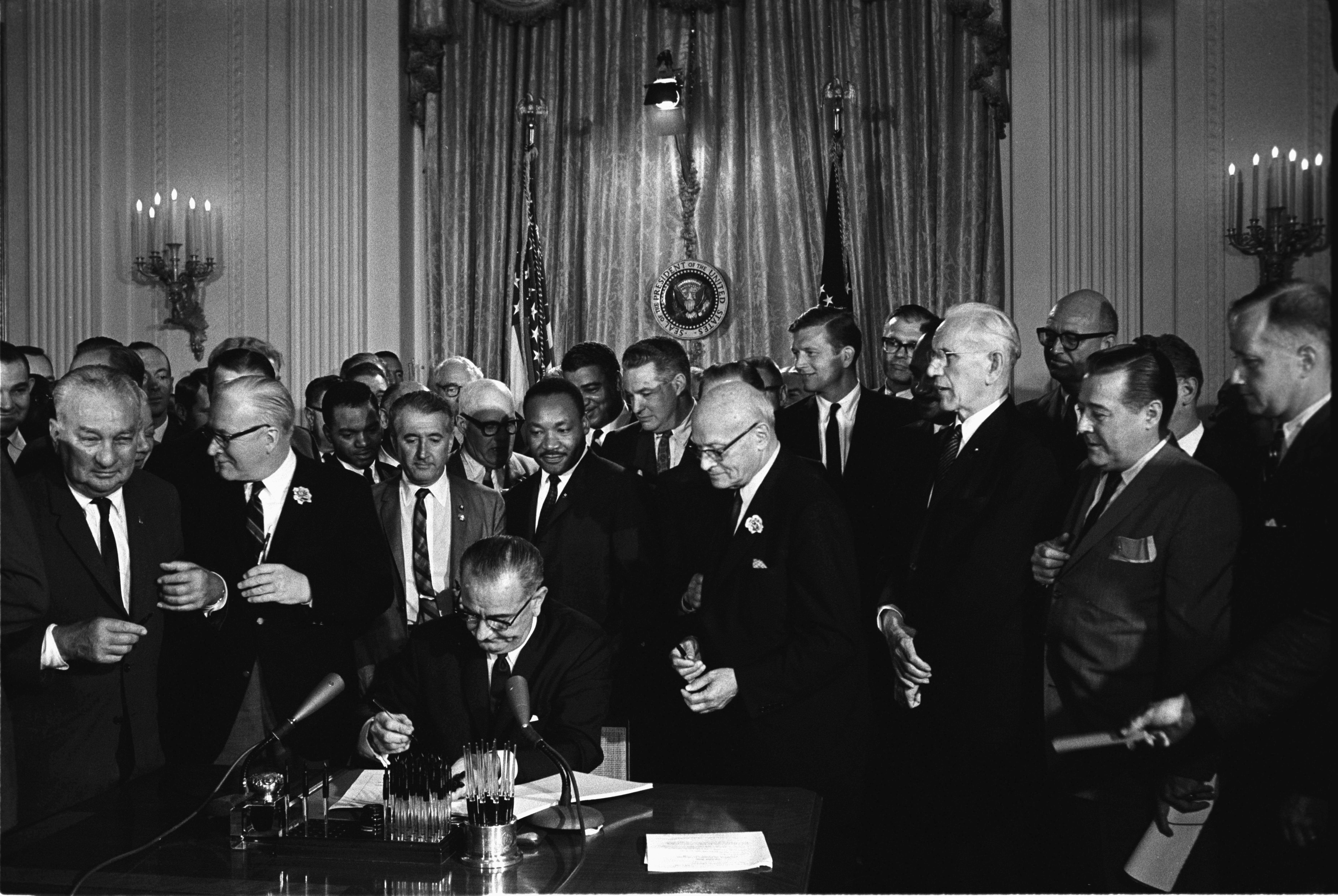
Lyndon Johnson signing Civil Rights Act
July 2 ,1964
2014 marks the 50th anniversary of the Civil Rights Act of 1964. Title VII from the Civil Rights Act outlaws employment discrimination that is based on race, color, sex, creed, religion and national origin, in addition to other protected identities.
Corporations have made progress reducing workplace discrimination and creating inclusive workplace environments that value diversity. However, the elimination of religious discrimination, bias and non-accommodation remains elusive.
Several years ago, Tanenbaum’s CEO, Joyce Dubensky, visited a teaching hospital to discuss religious bias in the health care industry with their board of directors. The hospital was committed to providing patient-centered care but after the formal meeting concluded, a hospital employee in human resources pulled Joyce aside. Although the hospital was experiencing a shortage of nurses, the employee was concerned about discriminatory hiring practices within the nursing department.
By law, hiring managers can ask applicant specific questions about their time availability, however, they cannot inquire about an applicant’s religious identity. Nevertheless, the human resources employee believed that hiring managers were identifying and disqualifying Orthodox Jewish applicants from nursing positions. Due to the long hours required by nurses, hiring managers struggled to accommodate Orthodox Jewish employees’ unavailability on Friday evenings, Saturdays and throughout certain holidays. When accommodations were made for Orthodox Jewish nurses, managers believed that the other nurses perceived the decision as favoritism.
Despite workplace initiatives that embrace diversity and inclusion, challenges remain in the prevention of workplace religious discrimination. Religion can be distinguished from other protected identities covered by Title VII of the Civil Rights Act of 1964.
Employers are required to provide reasonable accommodations for sincerely held religious, ethical or moral beliefs unless doing so would cause an undue hardship on the conduct of the employer’s business.
Despite intentions to welcome diversity, some employers may view religious accommodations as a burden that will require expenditure of time or money. Employers may hesitate to provide accommodations in fear that it will encourage numerous requests. Conversely, employees may be hesitant to submit requests for accommodations, in fear of creating friction or retaliation.